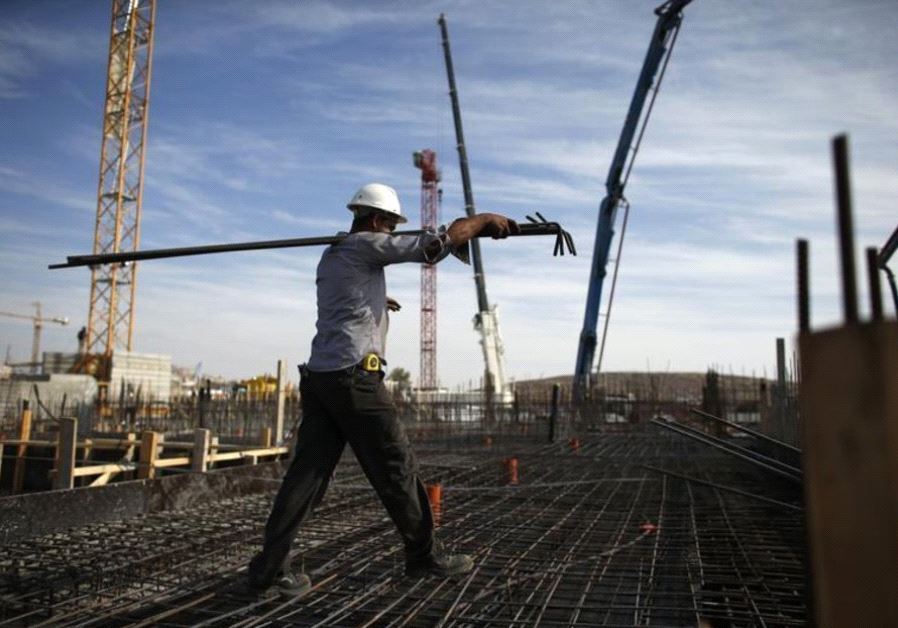Housing: Stops and starts
Roni Brik, president of the Israel Builders Association, believes that government policy with regard to the real estate industry is flawed.
 A laborer works on an apartment building under construction in the Har Homa neighborhood of Jerusalem
A laborer works on an apartment building under construction in the Har Homa neighborhood of Jerusalem